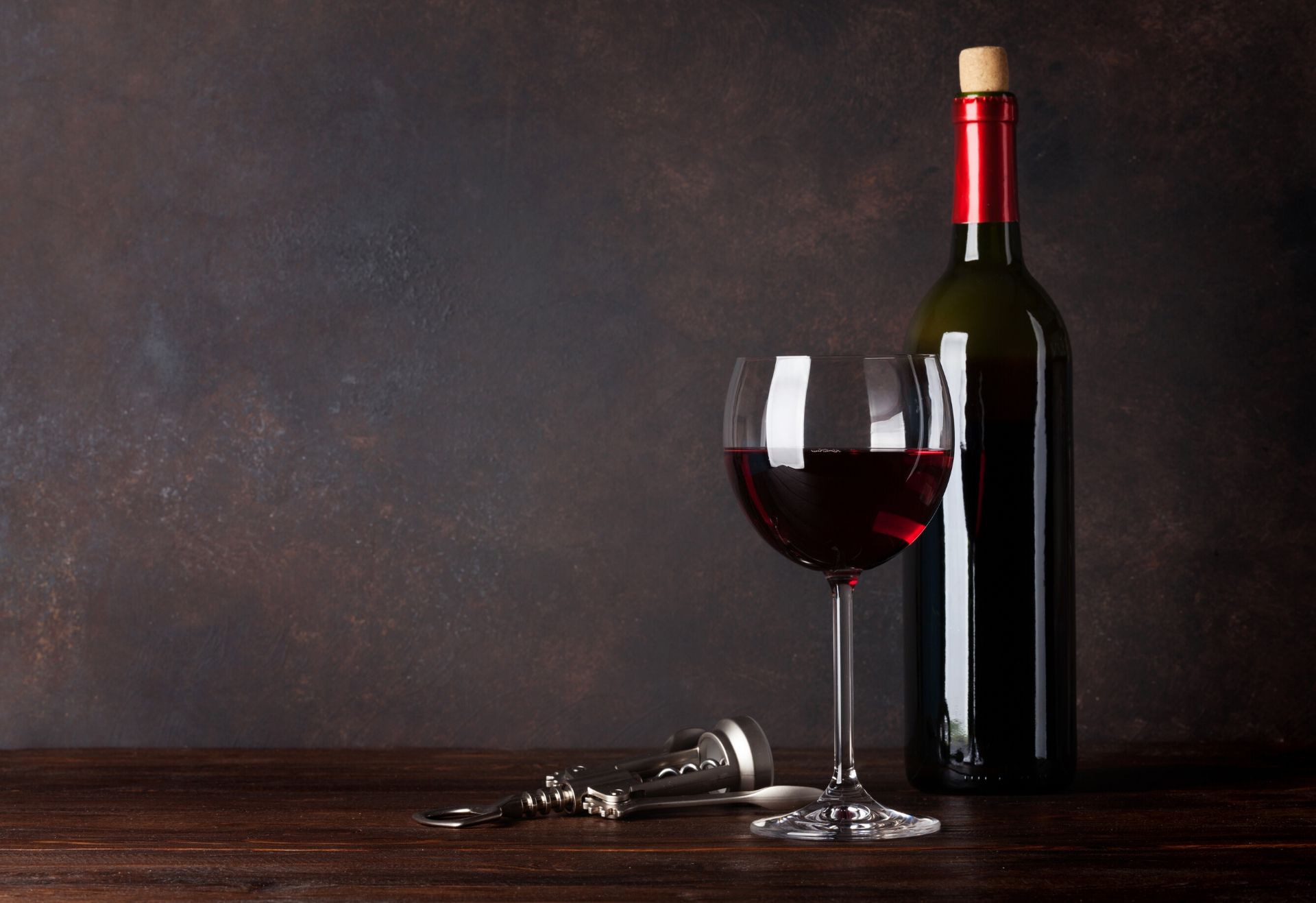
This is a Listen or Read Post
“Until the end of the 1950s not all wines were good, far from it, but almost all of them were authentic. Today one could almost feel nostalgia for the bad, real wine! Instead we continually encounter wines where the vine has been prevented from fulfilling its work, and where aesthetic intervention constantly has to labour to produce a good, but soulless, wine by means of technology’s thousand artificial measures.” from What is Biodynamic Wine: The Quality, the Taste, the Terroir by Nicolas Joly, Clairview Books, © Nicolas Joly 2007. Nicolas is responsible for producing some of the finest and most highly esteemed wines of France at his Coulée de Serrant vineyard.
I have a story to tell, and it’s about wine, and corporations, and farming practices. Remember when The Prisoner, a luxury wine brand by Orin Swift was popular? We ordered it in restaurants, friends brought it when they came to my house, and I took it when I went to theirs. Mac and I would share a bottle at a restaurant—no problem, no headache, no icky feeling. Then one evening at a restaurant, we ordered it as usual. It tasted fine, but later that night, the headache was horrific. It continued the next day making me think I had picked up a bug. A week or so later, we did it again, and wouldn’t you know—same headache, same clammy feeling. Not long after, I was talking to a sommelier. I happened to mention this event, at which point he told me Orin Swift had sold The Prisoner brand to a corporation. Clearly for me, whatever was going into the newly produced wine was not the same quality as before.
From this Mac and I developed an interest in wines produced in small vineyards only, and we have found some really terrific wines. Recently, we were in Royal Blue Grocery, in Highland Park Village, Dallas, talking to second level sommelier, Christina Chilcoat, who really opened our eyes to biodynamic agriculture. I had just read (for the third time) my favorite book, The Enlivened Rock Powders by Harvey Lisle.
The Enlivened Rock Powders introduces the readers to a beginning explanation of the spiritual, cosmic side of rocks and drawing from his extensive knowledge of biodynamic techniques and dowsing, Lisle explains how to utilize these materials in agriculture. Peppered with in-depth quotations from other writings on the forces within rocks.
What is Biodynamic Agriculture?
The biodynamic practice of agriculture is sometimes called, ‘premium organic‘. Biodynamics is credited to Rudolf Steiner (1861-1925) from his lectures to farmers in 1924. It is the ancient practice of esoteric concepts integrating scientific understanding with a marriage of spirit in nature. Each farm is an integrated whole, and a living organism in its own right. An ideal model is a wilderness forest, self sufficient in all realms of sustainability. No herbicides or pesticides are used.—ever. Biodynamic products take effort to find in today’s culture, but they do exist—you just have to know what you’re looking for and where to look.
What is the Demeter Association?
Biodynamic wine will have the Demeter Symbol on the label, or the top of the bottle seal. The Demeter Association began in France.
Biodynamic Certification Marks
Demeter is the owner of the trademark terms “Biodynamic®” and “Demeter®”. These trademarks are held as certification marks, which provide an assurance to consumers that the product has been certified to a uniform standard. Demeter holds these marks, and is therefore solely responsible for ensuring their adherence, to protect the integrity of Biodynamic agriculture and the products that result, both for consumers and for farmers. One only needs to think about the history of organic here in the United States, and the marketplace pressures that led to the erosion of its definition, to understand the importance of protecting such a comprehensive and historically significant agronomic system.
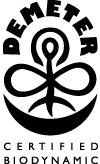
Requirements for certification are articulated in the Demeter Farm and Processing Standards. In order for a commercial farm or agricultural- based product to legally use the term in reference to its farm or products, it must have obtained certification through Demeter, and be re-certified every year.
“Wines and foodstuffs that carry the Demeter logo are Biodynamic, which means their growers use methods such as crop rotation, composting, and homeopatic sprays to cultivate the long-term health of the soil.”
– Real Simple magazine April 2008
The crops resulting from a certified Biodynamic farm are themselves certified (for example Biodynamic tomatoes), but in order to produce a certified processed product (for example pasta sauce) the product must be produced in accordance with the Demeter Biodynamic® Processing Standard. There are sixteen different processing standard categories (compared to one for the entire National Organic Program), including wine, cheese, olive oil, dairy and body care. The Processing Standard is very important because it guarantees an unbroken chain of accountability from the farm to the finished product, and delivers a product that allows for the integrity and purity of the agricultural ingredients to define it.
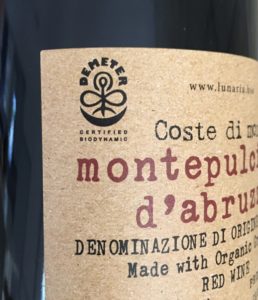
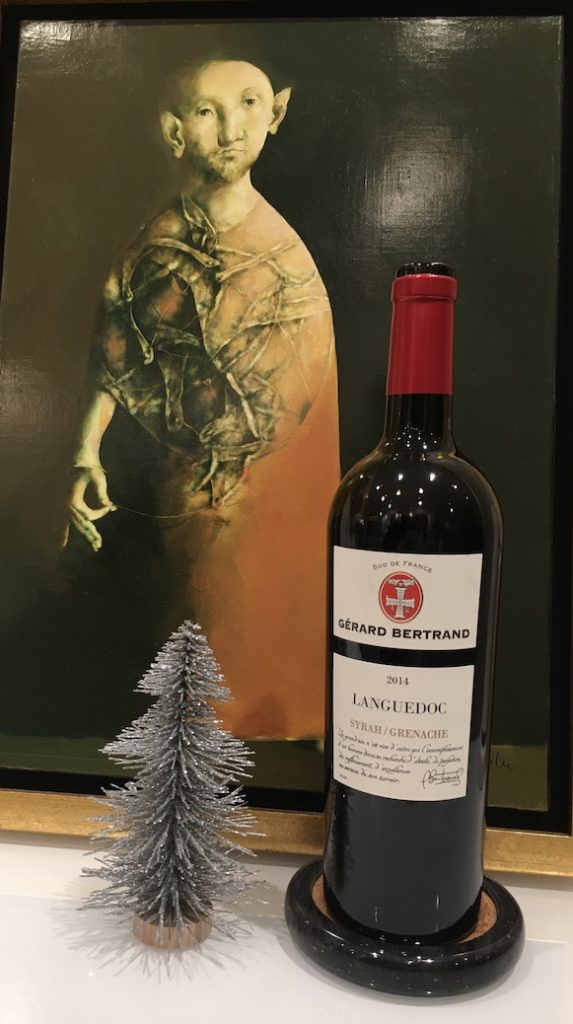
Wine Books
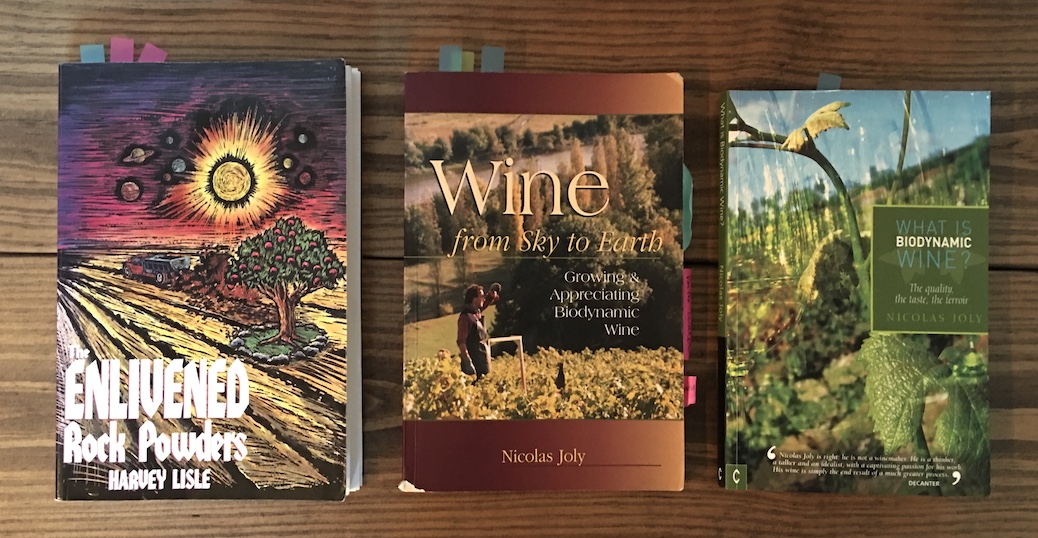
Enlivened Rock Powders by Harvey Lisle
Wine from Sky to Earth by Nicolas Joly
What is Biodynamic Wine? The quality, the taste, the terroir by Nicolas Joly
1001 Wines You Must Taste Before You Die
A View of Our Favorite Cups Mentioned in the Interview
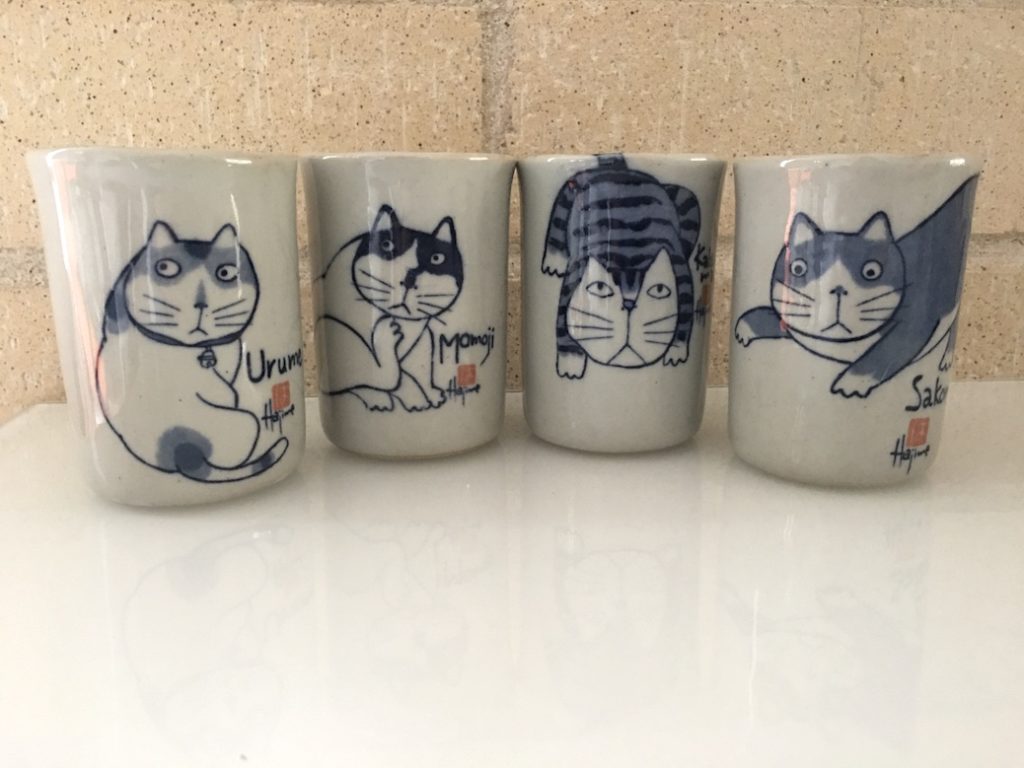


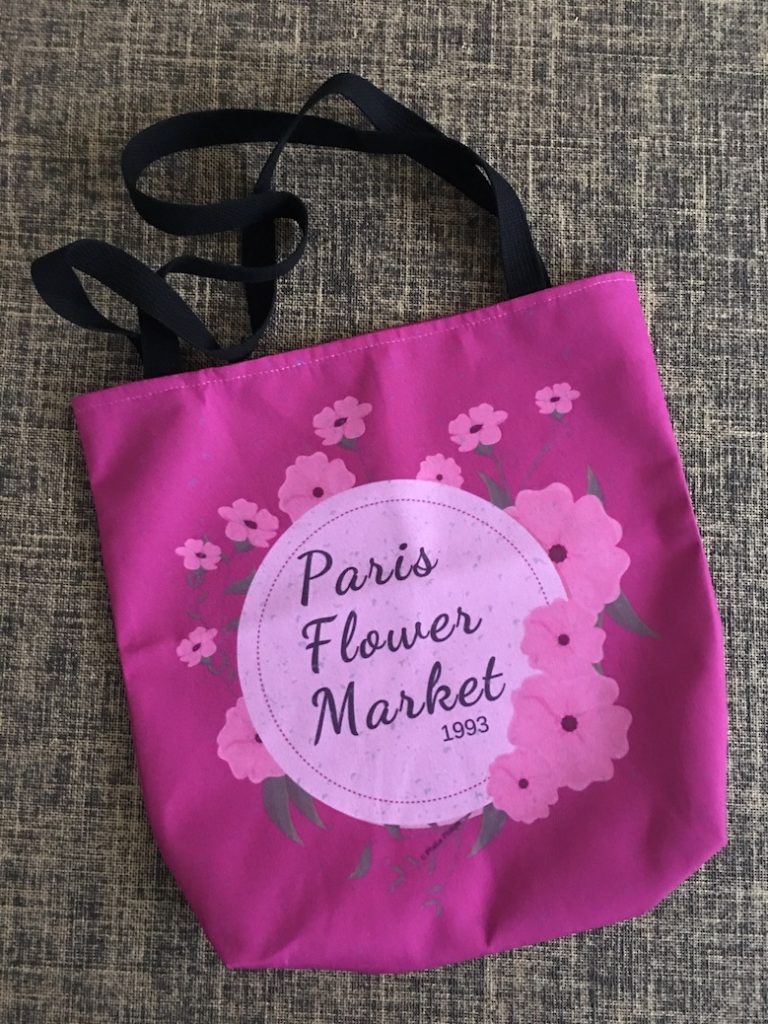


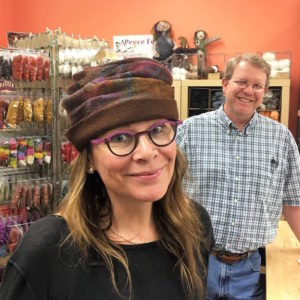
Phebe Phillips lives in Dallas with her husband Mac, and many cats. She is best known for her artisan plush toys sold at all FAO and Neiman Marcus stores from 1983-2010. Her book, Why Me? Positive Verse for Loss and Sadness is available on Amazon. She also creates The Literary Catcast Podcast.

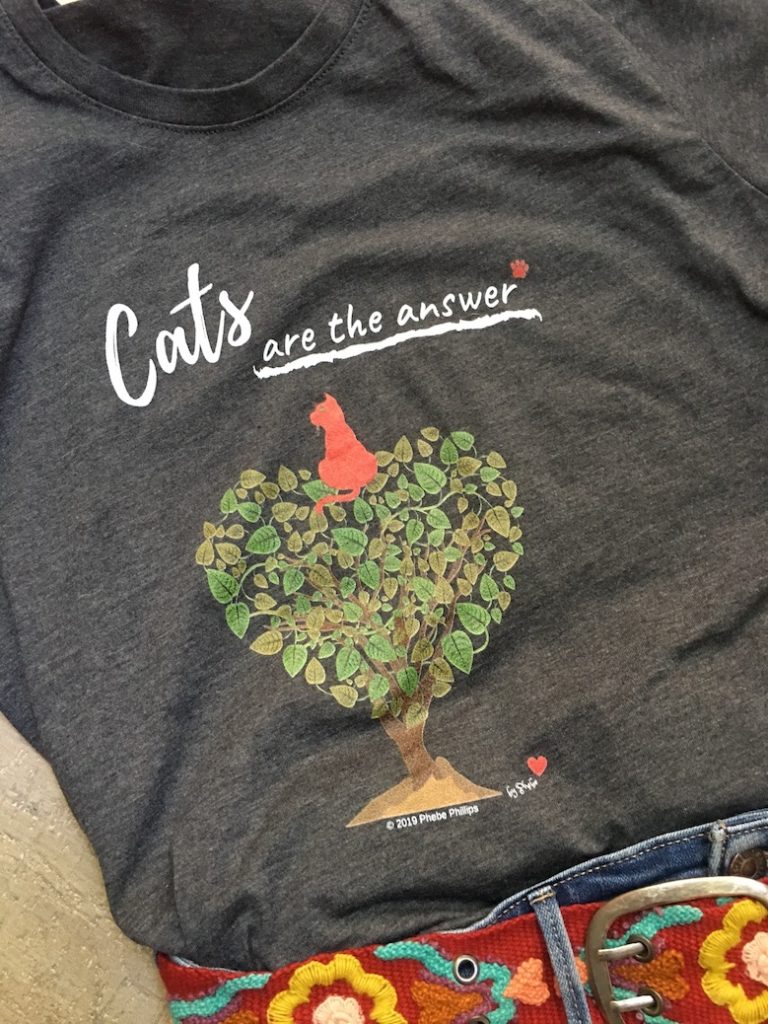
This is so interesting and informative!
Thank you Phebe!
Thanks, it was a fun interview.
Really enjoyed this. Opened by my eyes quite a bit. When living in Belgium we sought out small family run wineries. Everything was traditional and all done by hand. The wines were mostly good to excellent with no after effects the next morning. These vineyards were basically following bio dynamics. Most of these labels we have never seen since leaving Belgium.
Hi George,
This is so true. Thanks for sharing. My take-away from the interview is always seek small, family farms and vineyards.
~~Phebe